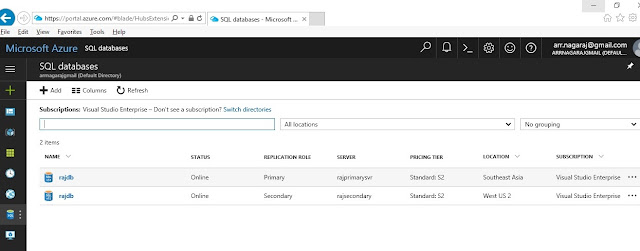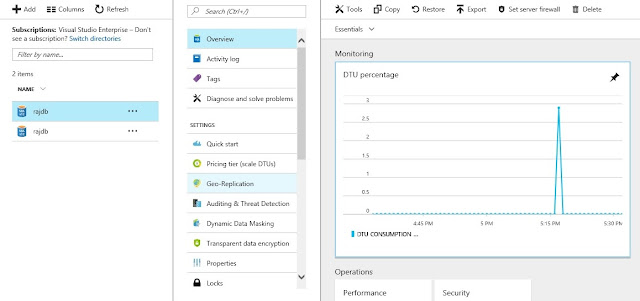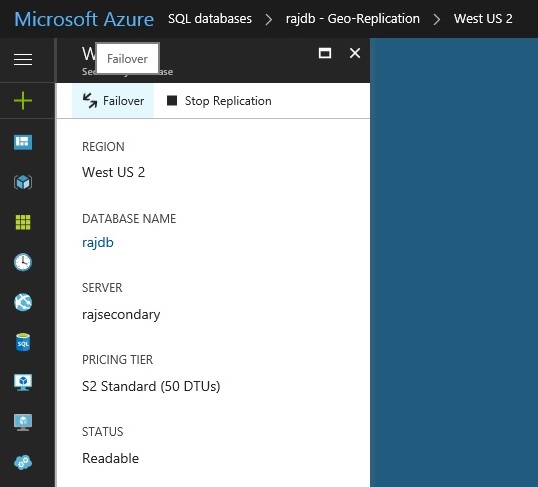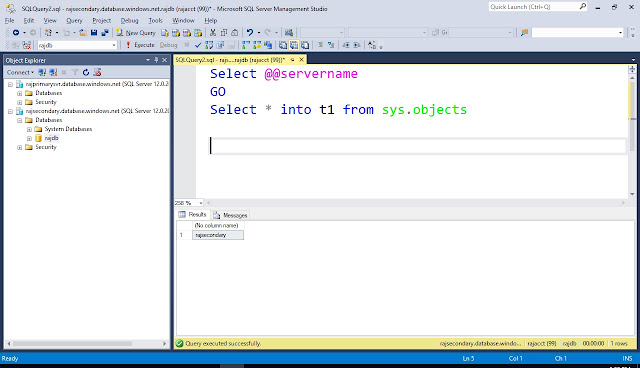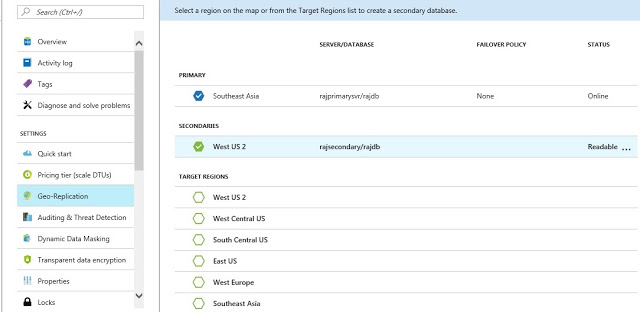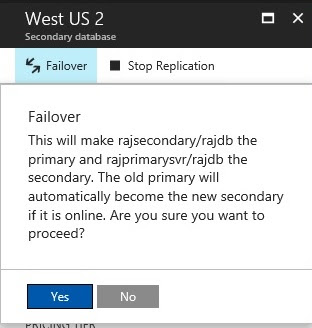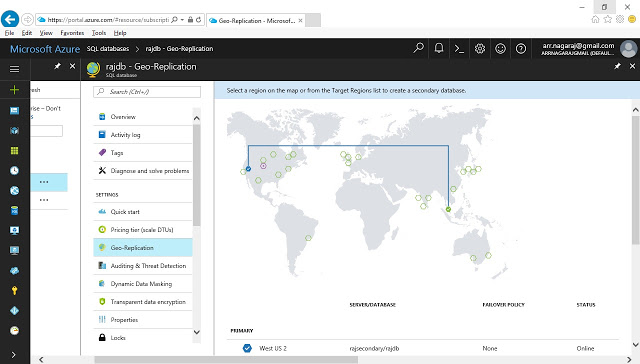Fairly straightforward task, just one needs to take care of few items.
Step 1: Login into portal.azure.com and click on Databases. The primary and secondary databases are listed
Step 2: Click on the primary and then click on "Geo Replication"
Step 3: Scroll down and click on the secondary as shown below
Step 4: Click on Failover as shown below
Step 5: Click "Ok" to confirm Failover
Step 6: The dotted lines between primary and secondary, showing the failover progress, turn to solid line upon completion of failover
Step 7: After failover, the replication role changes confirming the successful failover as shown below
Step 8: Secondary server accepts write operations as shown below
Few important things to know This failover is like a DB Mirroring failover. This means application will need to change their connection strings to secondary server upon failover. Unlike, Always on Availability groups, azure geo replication explained above, doesn't support transparent application failover. However, Azure Failover Groups (right now in preview) allows transparent failover for applications. More about that on next post 🙂


